Essential First Aid Kit Items For Vacations
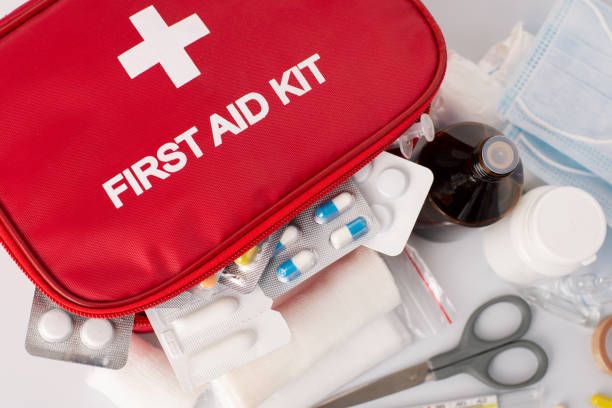
Vacations are meant to be a time to unwind and relax. But, what happens if you or a loved one suffers an injury or illness during your trip? That's why it's important to always carry a well-stocked first aid kit with you.
A good first aid kit can help you address minor injuries and illnesses on your own, and provide some much-needed relief before you can get to a medical professional. In this article, we'll go over some of the essential items you should include in your first aid kit during your next vacation.
1. Basic First Aid Kit Essentials
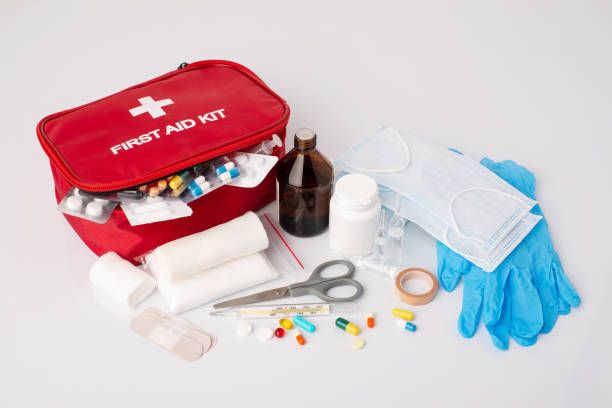
Before we delve into the specifics, let's go over some basic first aid kit essentials that should be in every kit:
1. Adhesive bandages: These are a must-have for any first aid kit. They can help cover and protect cuts, scrapes, and blisters.
2. Gauze: Gauze pads and rolls can help stop bleeding and absorb fluids.
3. Antiseptic wipes: These can help clean wounds and prevent infection.
4. Pain relievers: Aspirin, acetaminophen, and ibuprofen can help relieve pain and reduce inflammation.
5. Scissors: Scissors can help cut clothing or bandages in case of an emergency.
6. Tweezers: Tweezers can be used to remove splinters, ticks, or other foreign objects from the skin.
2. Additional First Aid Kit Items for Your Vacation
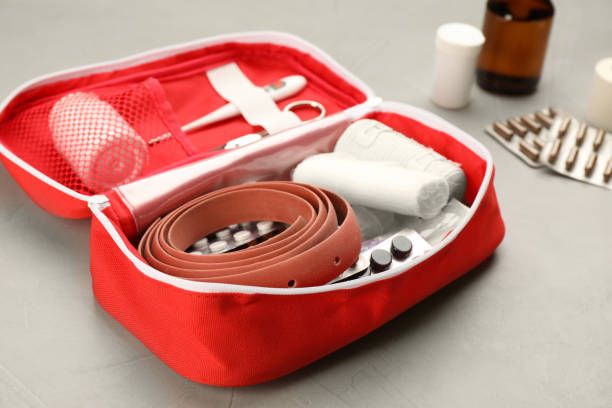
Now that we've gone over some basic first aid kit essentials, let's discuss some additional items that you should consider including in your first aid kit for your vacation:
1. Sunscreen: Sunscreen is a must-have if you're going to be spending time outdoors. Look for a broad-spectrum sunscreen with an SPF of 30 or higher, and don't forget to reapply it every two hours.
2. Insect repellent: Insect repellent can help protect against mosquitoes, ticks, and other biting insects. Look for a product that contains DEET, picaridin, or oil of lemon eucalyptus.
3. Antihistamines: If you're prone to allergies or insect bites, it's a good idea to include an antihistamine like Benadryl in your first aid kit. Antihistamines can help reduce swelling and itching.
4. Cold packs: Cold packs can help reduce swelling and relieve pain from sprains, strains, or bruises.
5. Hot packs: Hot packs can help relieve muscle aches, menstrual cramps, and other types of pain.
6. Medical gloves: Medical gloves can help protect against the spread of infection if you need to administer first aid to someone else.
7. Thermometer: A thermometer can help you monitor your temperature if you suspect you have a fever.
8. Hand sanitizer: Hand sanitizer can help kill germs and bacteria on your hands when you don't have access to soap and water.
9. Antibiotic ointment: Antibiotic ointment can help prevent infection and promote healing in minor cuts and scrapes.
10. Emergency whistle: An emergency whistle can be used to attract attention in case of an emergency.
3. Special Considerations for Your Destination
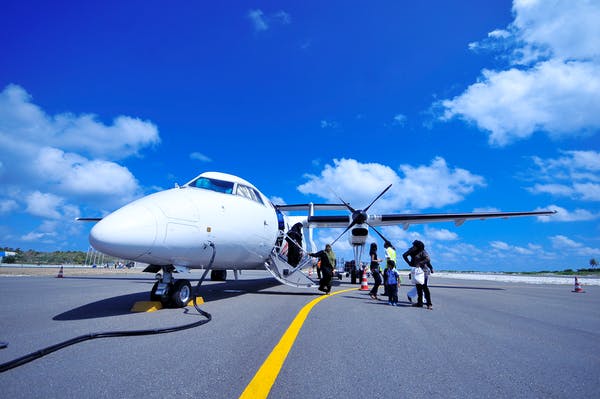
When packing your first aid kit for your vacation, it's important to consider your destination and any specific activities you'll be doing. Here are some special considerations to keep in mind:
1. Water-related activities: If you'll be swimming, snorkeling, or participating in other water-related activities, consider adding items like earplugs, nose plugs, and swimmer's ear drops to your first aid kit.
2. Hiking and camping: If you'll be hiking or camping, consider adding items like moleskin, a compact emergency blanket, and a pocket knife to your first aid kit. Additionally, if you're camping, you may want to include items like matches, a fire starter, and a flashlight.
3. Extreme temperatures: If you're visiting a destination with extreme temperatures, such as a very hot or very cold climate, make sure to pack items like lip balm, a hat, and extra layers of clothing to protect yourself from the elements.
4. High-altitude activities: If you'll be participating in activities at high altitudes, such as hiking or skiing, consider adding items like altitude sickness medication, oxygen canisters, and a pulse oximeter to your first aid kit.
4. Personalized Items for Your Family's Needs
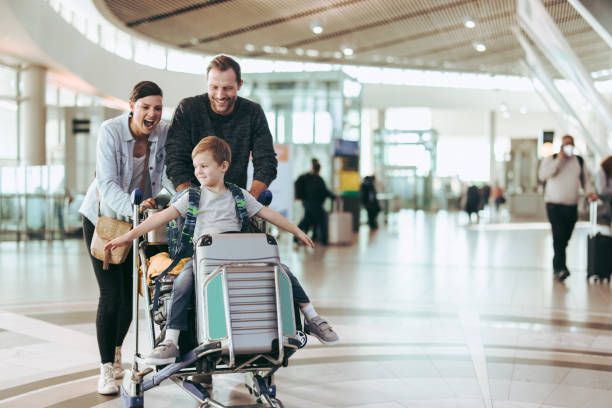
Lastly, it's important to personalize your first aid kit to meet the specific needs of your family. Here are some personalized items you may want to consider adding:
1. Prescription medications: If anyone in your family takes prescription medication, make sure to pack enough for the duration of your trip, plus a few extra days in case of unexpected delays.
2. Allergy medication: If anyone in your family has allergies, make sure to pack their allergy medication.
3. Asthma inhaler: If anyone in your family has asthma, make sure to pack their inhaler.
4. EpiPen: If anyone in your family has a severe allergy, make sure to pack their EpiPen.
5. Personal hygiene items: If anyone in your family has specific personal hygiene needs, such as contact lens solution, make sure to pack those items as well.
Conclusion
In conclusion, a well-stocked first aid kit is an essential item to bring on any vacation.
By including basic first aid kit essentials like adhesive bandages, gauze, antiseptic wipes, pain relievers, scissors, and tweezers, as well as additional items like sunscreen, insect repellent, antihistamines, cold and hot packs, medical gloves, a thermometer, hand sanitizer, antibiotic ointment, and an emergency whistle, you can be prepared to address minor injuries and illnesses on your own.
Additionally, it's important to consider your destination and any specific activities you'll be doing, as well as any personalized items your family may need, when packing your first aid kit.
With a well-stocked first aid kit, you can have peace of mind knowing that you're prepared for any unexpected situations that may arise during your vacation.
